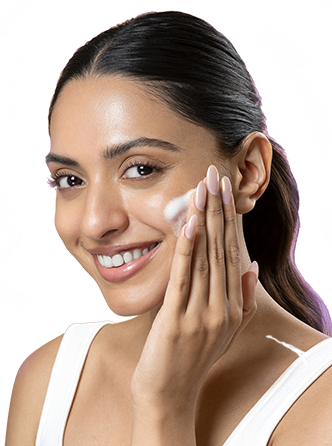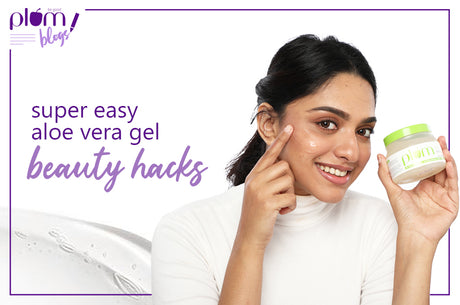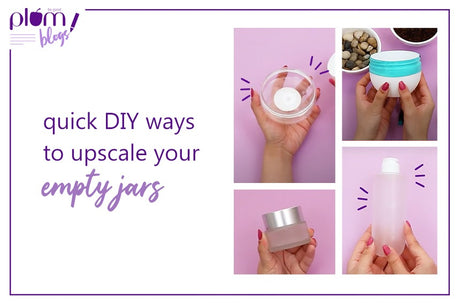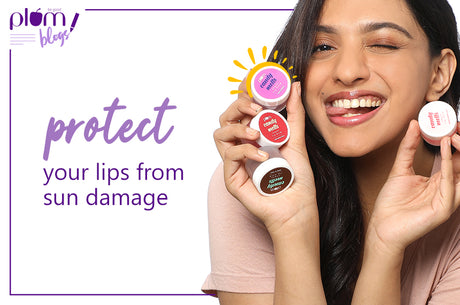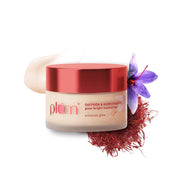 Is it essential to use a face scrub? How often should you exfoliate your face and what kind of face scrub should you use? Let's find out!
Is it essential to use a face scrub? How often should you exfoliate your face and what kind of face scrub should you use? Let's find out!
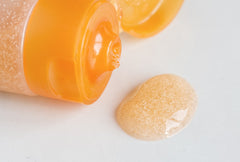
- makes your skin look younger and more radiant
- allows for your skincare products to penetrate deeply and work more effectively
- allows your makeup to sit better on your skin
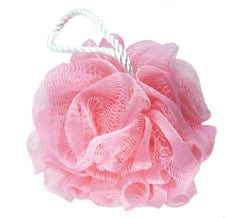
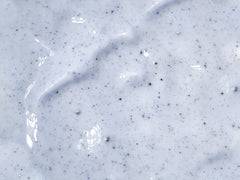
- These are specific ingredients that help perform scrubbing action. Usually,these include AHAs(Alpha Hydroxy Acids), which are mild, gentle acids present in very small concentrations, that do a great job with exfoliation.
- Some examples of AHAs are Lactic Acid (found in milk), and Glycolic Acid (found in sugarcane) extracts
- They are safe for the skin in small amounts and may only be harmful if concentrations are too high or if skin is very sensitive.
4. What Ingredients Should I Look for in a Scrub?
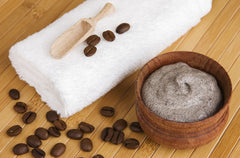
Besides the ingredients that act as scrubs, look for other active ingredients that can benefit your skin in different ways.
Chamomile extracts or aloe juice calm the skin. Green tea extracts, white tea extracts and any other ingredients rich in antioxidants and help repair sun damage due to oxidation caused by the sun’s UV rays.
Walnut and apricot face scrubs help to thoroughly exfoliate the skin. However, if used more than once or twice a week, these face scrubs can be abrasive on the skin. Hence, they should not be used more than thrice a week, or as directed in the usage directions.
5. Can I Make a Face Scrub at Home?
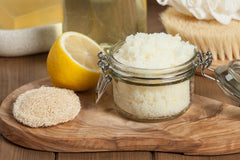
Yes, you can! You can whip up a great face scrub at home by using gentle and effective ingredients such as oatmeal, rice powder, sugar, honey and olive or coconut oil. While going about this, keep the following points in mind:
- Ensure that your ingredients will suit your skin type, e.g., neem as an ingredient can be harsh on very sensitive skin. Read up on the ones you are planning to use.
- Do a patch test (testing a product on the elbow or behind the ear before using it) for your home-made scrub. This will help you ensure that the product will suit your skin.
- Don't scrub too hard, it can lead to irritation and reddening of the skin.
- Go easy on or avoid areas on the skin that are irritated, infected or bruised .
Do include exfoliation regularly in your skincare routine. Scrubbing, done the right way,can help brighten up dull skin, soothe sun damage and repair damaged skin, based on the type of scrub you go for. So make sure you experience its benefits!
Related Posts:
Glycolic Acid: Skincare Super-ingredient DemystifiedExfoliation - easy & rewarding
We’ve Got Answers: “Can I use a face scrub daily?” And 5 other questions
Your Very Own Guide for Choosing the Perfect Face Mask
Can I remove sun tan at home? Yes you can!
7 secrets to prettier-looking feet
DIY: Glowing skin in 4 easy steps
Related Products:
NEW: Tan Busters Combo - Face Scrub + Face MaskNEW: Ban The Tan Combo - SPF50 + Face Scrub + Face Mask
NEW: Plum Chamomile and White Tea Ban The Tan Combo - SPF50 + Face Scrub + Face Mask
NEW: Plum Chamomile and White Tea Tan Busters Combo - Face Scrub + Face Mask
NEW: Plum Chamomile and White Tea Brighten-Up Face Scrub
Plum Daily + Weekly Care Duo: Normal, Combi Skin
Plum Grape Seed & Sea Buckthorn Mild Foam Scrub


